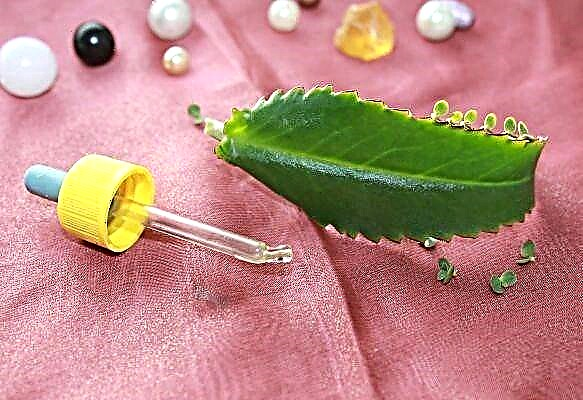
When a doctor discovers a liver disease or a problem with the biliary tract, he prescribes one of the hepatoprotective drugs, which include Ursofalk. Many are interested in such questions as: is such a medicine used in childhood, under what pathologies, what doses are prescribed for children and whether this medication is harmless for the child's body.
Release form
The drug is produced by a German company and is presented in three dosage forms.
- Suspension. It is white in color, homogeneous in structure and smells like lemon. One glass bottle holds 250 ml of suspension and is supplemented with a 5 ml measuring cup.
- Film-coated tablets. They have a convex oblong shape and white color. One package contains 25 tablets.
- Capsules. Such "Ursofalk" has a dense white gelatin shell, inside of which there is a white powder. One pack sells 10, 50 or 100 capsules.


Composition
The main component of the drug, thanks to which it has a healing effect, is called ursodeoxycholic acid. The amount of such acid in 5 ml of suspension and in 1 capsule is 250 mg, and in one tablet - 500 mg. Additionally, liquid "Ursofalk" contains sodium cyclamate, lemon flavor, xylitol, sodium chloride, glycerol and other ingredients. Auxiliary components of capsules are gelatin, sodium lauryl sulfate, corn starch and other substances.
In addition to the active substance, the tablets contain talc, polysorbate 80, MCC, hypromellose and other compounds.

Operating principle
"Ursofalk" is a group of hepatoprotectors, as this drug has a positive effect on the condition of the liver and biliary tract. It has properties such as:
- protect hepatocytes from harmful effects;
- stimulate the formation, as well as the secretion of bile;
- interfere with the synthesis of cholesterol in liver cells, as well as reduce its absorption in the intestine (the result will be a decrease in blood cholesterol levels);
- increase the solubility of cholesterol in the biliary tract, thereby dissolving cholesterol stones;
- reduce the lithogenicity of bile (tendency to form stones);
- increase the concentration of bile acids in bile;
- enhance the secretion of enzymes in the stomach and pancreas;
- increase lipase activity;
- reduce the saturation of bile with cholesterol;
- activate immune responses in liver cells.
Studies have also confirmed the positive effect of the drug in patients with cystic fibrosis. In case of damage to the hepatobiliary system after courses of "Ursofalk", the lesions appeared less frequently, and if the treatment was started in the early stages, then the reverse development of the changes was also observed.

Indications
"Ursofalk" is prescribed for the following diseases:
- dyskinesia of the biliary tract;
- gastroduodenitis;
- cholangitis;
- identifying stones in the gallbladder;
- chronic hepatitis;
- reflux gastritis;
- primary biliary cirrhosis;
- cystic fibrosis.

At what age is it assigned to children?
There are no age restrictions for the use of ursodeoxycholic acid.
This medication is safe for both infants and older children.
At the same time, solid forms of "Ursofalk" are not used until 3 years, which is associated with the difficulty of swallowing tablets and capsules. The instruction for the drug recommends giving the drug in suspension to children weighing less than 47 kg.

Contraindications
"Ursofalk" should not be given with the following symptoms:
- the child has an increased sensitivity to any of the ingredients of the medicine;
- stones in the biliary tract are X-ray positive, that is, they have a large amount of calcium;
- the child's gallbladder does not function;
- diagnosed with acute inflammation of the biliary tract or intestines;
- the patient has cirrhosis who has passed into the stage of decompensation;
- there are problems with the contractility of the gallbladder;
- the bile ducts are blocked;
- the child often has biliary colic;
- identified a serious kidney pathology;
- the patient developed severe hepatic impairment.

Side effects
Some patients develop loose stools, hives or abdominal pain during treatment with Ursofalk. If such side symptoms are found, the further use of the medication should be consulted with a specialist.
If a medication is prescribed when gallstones are detected, then they can be calcified, and with cirrhosis therapy, the drug can provoke a worsening of the condition, which requires the drug to be discontinued.
Instructions for use
The suspension is given to children from a glass, and to patients weighing less than 20 kg, for example, a month-old baby, from a syringe without a needle. Tablets and capsules should be swallowed without chewing or chewing. If the drug is prescribed to a child over 3 years old, but he has difficulty swallowing a solid form, they switch to taking a suspension.
The regimen is prescribed by the doctor depending on the disease. Often the medicine needs to be drunk once at night, but sometimes it is given 2-3 times a day with an increase in dosage in the evening. And there are also schemes when the medication is taken three times for the first months, and then they switch to single use. The diet does not affect the time of admission, the drug can be given both before meals and after feeding.


The dosage of "Ursofalk" depends on the reason for using the medicine. For example, if it is prescribed to dissolve gallstones, then for every kilogram of the patient's body weight, 10 mg of the active ingredient of the drug is required. The same dosage is used for biliary dyskinesia. For cystic fibrosis or cholangitis, the drug is prescribed in a dose of 12 to 15 mg / kg, for hepatitis - from 10 to 15 mg / kg. If the doctor sees the need, then the dosage can be increased to 20-30 mg / kg.
The duration of treatment is also determined individually.
If the medication is prescribed for cholesterol stones, it should be drunk from 6 months to 2 years. For reflux gastritis, courses of 10 days or more are used, for hepatitis - lasting 6-12 months, and for cystic fibrosis, the medication is given for several years. The effectiveness of treatment is monitored using liver function tests, radiography or ultrasound.

Overdose
If you exceed the dose of "Ursofalk", the child will have liquid feces, since the excess ursodeoxycholic acid will be excreted through the intestines. In such a situation, you need to prevent dehydration by restoring the balance of electrolytes and fluids. An overdose of medication does not require specific treatment.
Interaction with other drugs
"Ursofalk" is not recommended to be combined with smectite preparations, antacids, cyclosporine, cholestyramine, ciprofloxacin and some other drugs noted in the annotation.
Terms of sale
To buy any of the forms of "Ursofalk" in a pharmacy, you must first consult a doctor, since these drugs are sold by prescription. One bottle of the suspension costs an average of 1200 rubles, and the price of 10 capsules is 200-220 rubles.

Storage conditions
The drug should be kept in a place hidden from children, where the temperature will not exceed 25 degrees Celsius. The shelf life of the suspension and tablets is 4 years, capsules - 5 years.
An opened bottle of suspension can be stored for no longer than 4 months.

Reviews
On the treatment of children "Ursofalk" respond mostly well. Most often, a suspension is chosen for a child, which is praised for its ease of use, pleasant taste and ease of dispensing. The disadvantages of a medicine are usually attributed to its high cost. In addition, in some cases, the effect of the drug was insufficient, and sometimes the medication provokes allergies or loose stools.

Analogs
A substitute for "Ursofalk" can be one of the drugs with the same active compound as:
- Ursosan;
- "Ursodez";
- "Urdoks";
- Exhol;
- "Livodexa";
- "Ursoliv";
- Choludexan.
Such drugs are produced in the Czech Republic, Egypt, Russia and India. Most of these medicines are in capsules containing 250, 300 or 500 mg of ursodeoxycholic acid each. Only "Livodexa" and "Exhol" are produced in tablets, and there are no analogues of the "Ursofalk" suspension.
The cost of many of these products is lower than the "Ursofalk", so they are often chosen when there is a need to save.


In addition, depending on the pathology, the doctor may prescribe other hepatoprotectors or choleretic drugs, for example, Holosas syrup, Flamin granules or tablets, Allochol tablets, or Chophytol solution, which is even given to an infant in drops. The action of such funds is provided by various substances. In addition, they have their own age restrictions and contraindications, so the choice of an analogue "Ursofalk" should be carried out by a doctor.



